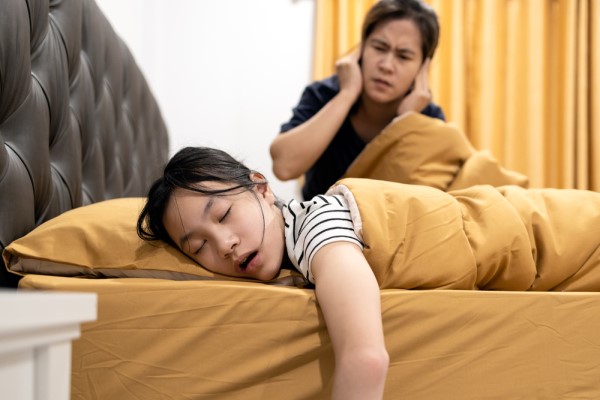How a General Dentist Treats Sleep Apnea

An estimated 22 million Americans have sleep apnea, and well over half of individuals with obstructive sleep apnea have a moderate to severe case. A general dentist studies and understands why sleep apnea occurs and can effectively treat it with oral appliances and other treatment methods.
General dentistry and sleep apnea treatment
Sleep apnea is a common condition in which the airway in the back of the throat closes while sleeping. This causes the person to quit breathing temporarily. It is not a major health risk, but it does lead to the individual constantly waking up throughout the night and can lead to cardiovascular health problems if left untreated for too long
Many do not know whom to visit when sleep apnea leads to concerning symptoms. While visiting a sleep specialist may be necessary in some cases, a general dentist who offers sleep apnea treatment can also address the patient's concerns. General dentists focus on all aspects of oral health, and many consider sleep apnea to be an important condition to treat, as it can affect oral health and general health.
Dental treatment options for sleep apnea
The two main types of treatment for sleep apnea are CPAP machines and mandibular advancement devices. Although CPAP machines are effective, general dentists are typically more likely to recommend a mandibular advancement device. This device is a custom mouthguard that keeps the tongue and jaw in the proper position to keep the airway open while asleep.
Other treatment options include surgery or medications. Medications are typically only effective for central sleep apnea. Moreover, surgery is often only used if less invasive treatment methods do not work.
How the process works for sleep apnea treatment
The sleep apnea treatment process with a general dentist begins with a consultation. The dentist reviews the patient’s dental and medical history, documents their sleep apnea symptoms, and discusses treatment goals. They can then discuss all available treatment options and decide on the best method, which is often a mandibular advancement device.
When to visit the general dentist for sleep apnea treatment
If symptoms of sleep apnea begin to affect a person's general health and quality of life or they have been recently diagnosed with obstructive sleep apnea, it is important for them to seek treatment. Common symptoms include but are not limited to:
- Waking up at night
- Feeling tired during waking hours
- Difficulty concentrating
- Snoring
- Having migraines in the morning
- Gasping or choking sounds when asleep
Many patients report long-term relief from their sleep apnea symptoms after visiting a general dentist and starting a treatment plan tailored to their unique needs.
Schedule your first visit with our dental practice
Are you considering sleep apnea treatment from a general dentist? If so, call or send our friendly dental team a message today to schedule a visit. During the visit, we can discuss your symptoms, goals for treatment, and treatment preferences to determine the best way to manage your sleep apnea symptoms in the long term.
Request an appointment here: https://www.alanlevydds.com or call Alan S. Levy, DDS at (818) 668-9055 for an appointment in our Tarzana office.
Check out what others are saying about our dental services on Yelp: Sleep Apnea in Tarzana, CA.
Related Posts
Dental bone grafts restore structure and strength to the jawbone. Not only does this enhance the natural appearance of the face, but it can also create a strong foundation for dental implants. There are several types of dental bone grafts that an oral surgeon may recommend. Exploring the various types available can better prepare patients…
Dental implant surgery is a necessary procedure during dental implant treatment. It involves placing the implant, a metal post that supports the abutment and replacement tooth, into the jawbone. Understanding what the procedure involves and whether or not the procedure is painful can help you prepare mentally and physically for undergoing the process.The experience with…
A dental crown is a long-lasting dental restoration that helps restore the strength, appearance, and function of a severely damaged tooth. While these restorations are strong, proper dental crown care ensures their durability and prevents potential complications. The following guidelines can help you preserve your newly restored tooth and maintain your long-term oral health.A dental…
Searching for a dentist near me often begins with convenience, but the range of services offered should be a top priority. A comprehensive dental practice not only addresses routine care but also provides advanced treatments to support long-term oral health. From preventive visits to restorative and cosmetic procedures, having access to the right services under…
